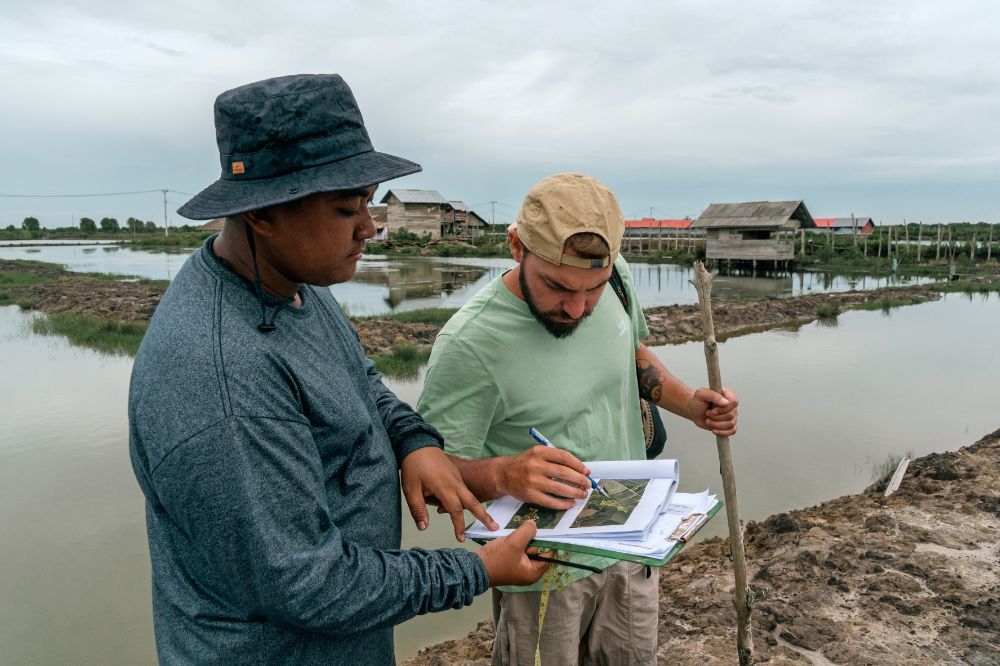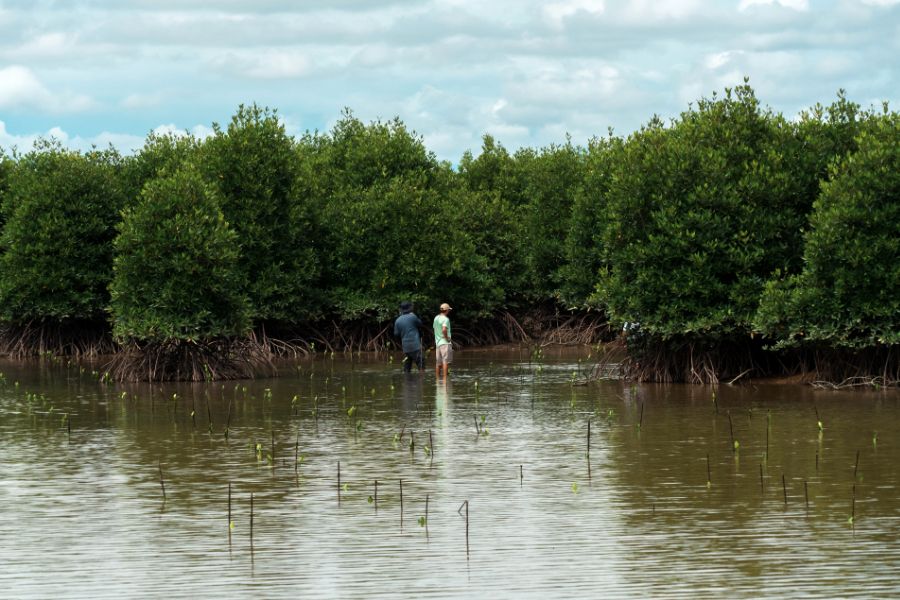Five years of action for mangroves alongside local actors
"In Sumatra, we work with two local actors," says Martín, coordinator of Reforest'Action's projects in Asia. "On the one hand, Yagasu, which is an NGO with over twenty years of experience in ecosystem restoration, livelihood improvement and local community integration. On the other hand, Yakopi is a newly established NGO with a young and highly motivated team. We selected these two projects in accordance with our specifications, not only because they are very qualitative programmes in terms of mangrove restoration and biodiversity preservation, but also because they both include a component dedicated to the economic development of the populations. These regenerative projects are thus conducive to the sustainable mobilisation of communities.
The restoration of mangrove ecosystems within the framework of our projects aims to restore and increase their ecological services, which are currently degraded and no longer contribute to the well-being of populations. In addition to mangrove planting, many activities are carried out in the field by Yagasu and Yakopi to enhance the environmental resources of the mangrove and generate income for local communities.
"A regenerative project aims, beyond the restoration of a given ecosystem, to enable this ecosystem to once again achieve its multifunctionality, i.e. the wide variety of environmental and socio-economic benefits it produces for local communities," continues Martín. "The mangrove restoration activities carried out in our projects in Sumatra are thus closely linked to the socio-economic activities of the people and enable them to achieve sustainability in terms of resource renewal and their livelihoods. Such projects therefore ensure the sustainability of the restored mangrove ecosystems as the people find a direct interest in their protection."
Since 2017, thanks to the support of Reforest'Action, Yagasu has restored 415 hectares of mangroves within the provinces of North Sumatra and Aceh. For its part, Yakopi, funded by Reforest'Action since 2021, aims to restore 481 hectares by 2024 in these same provinces. At the same time, the two organisations are increasing the number of awareness-raising workshops for local communities and developing various economic sectors that make use of the mangrove's natural resources, such as the production of batik and palm sugar, or the practice of silvo-fishery.
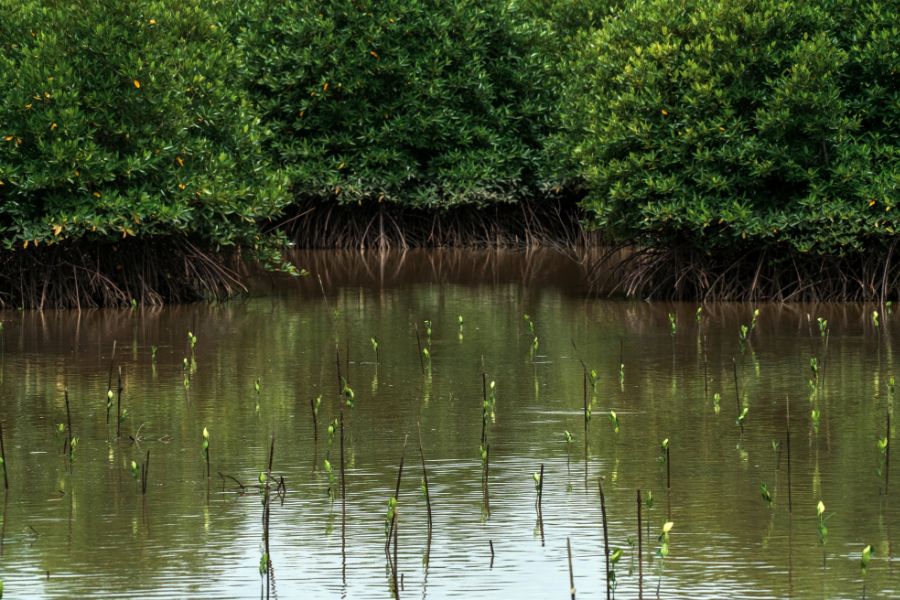
Local communities commit to rehabilitating the mangrove
In concrete terms, on the ground, the projects run by our local partners are based on the mobilisation of the populations. From the collection of propagules to their germination in bags, from the maintenance of plants in nurseries to their planting on the beaches and in the deltas - the villagers are full-fledged actors in the restoration of mangroves. Ismael, who we met on the riverbank in Seuneubok Peusangan, is spending his morning planting mangroves with Yakopi. "I joined the planting team with the hope that our mangrove will finally regenerate and become home to many species of fish. Around me, I try to share my motivation, so that more and more villagers get involved in the restoration." Alini, who welcomes us to the village of Rantopanjang, is involved in the nursery work for the Yagasu project. "I collect the propagules, place them in the bags and then take care of them for about three months. I receive a salary for this work and it helps me to increase my household income." Whether in terms of job creation or generating additional income through economic activities from the mangrove, 29 villages have benefited from the Yagasu-led project since 2017, and 8 villages from the Yakopi-led project since 2021.
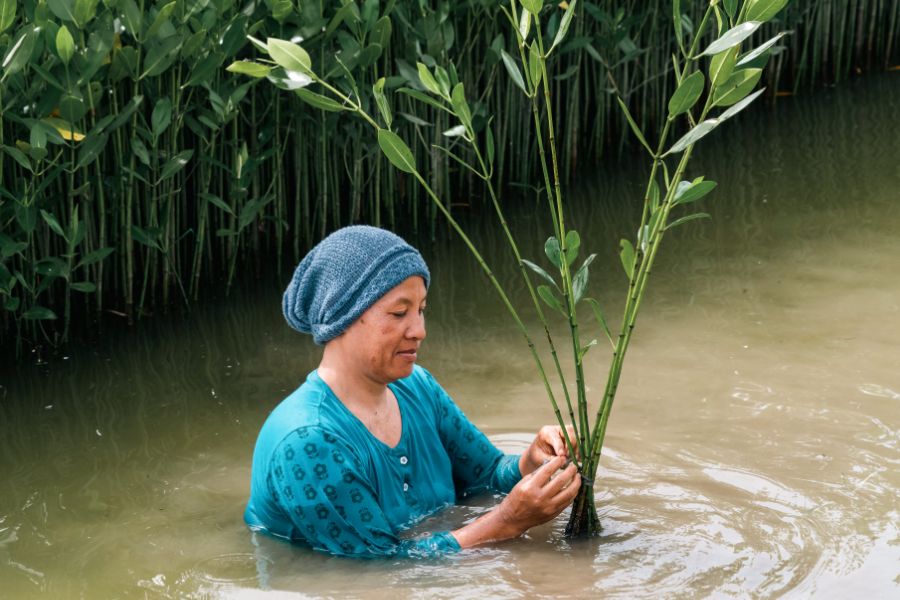
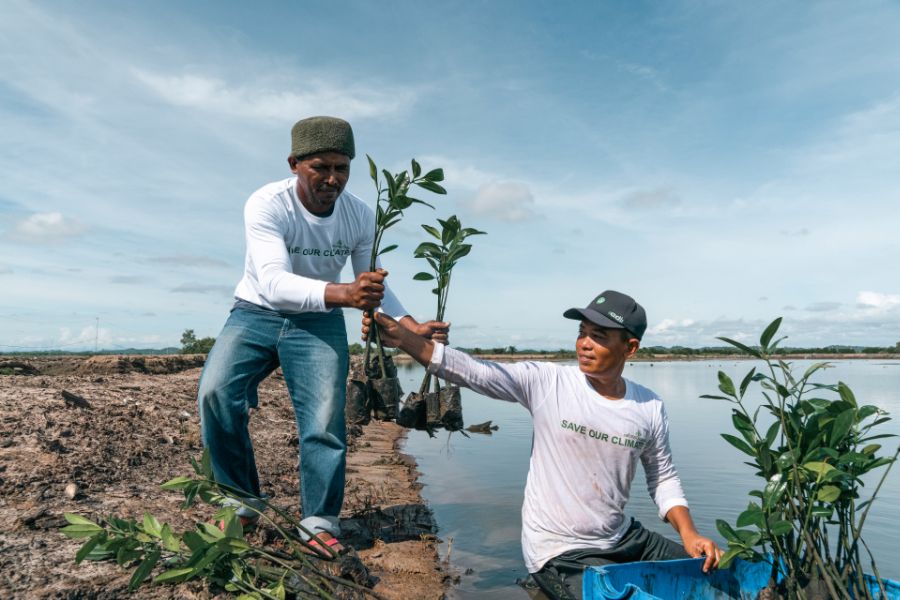
Reforest'Action's expertise in the field to strengthen the implementation of projects
Because any ecosystem restoration project only makes sense if it is properly implemented and really delivers the expected benefits, Reforest'Action attaches paramount importance to monitoring and measuring the results and impacts of projects over time. "In the field, Reforest'Action's added value for our operational partners, such as Yagasu and Yakopi, is based on two pillars: monitoring and impact assessment," explains Martín. "Through audit missions, we monitor the activities carried out within the framework of the project and highlight areas for improvement. We also measure the concrete impacts of the project, particularly in terms of biodiversity development, carbon storage and economic benefits for local communities. To do this, we have Project Officers located around the world, specialising in forestry, who travel to the projects closest to them to carry out the audits. Here in Indonesia, our Project Officer is Ade. He is a bright and motivated young professional based near Jakarta, who did his first audit for Reforest'Action in Sumatra.
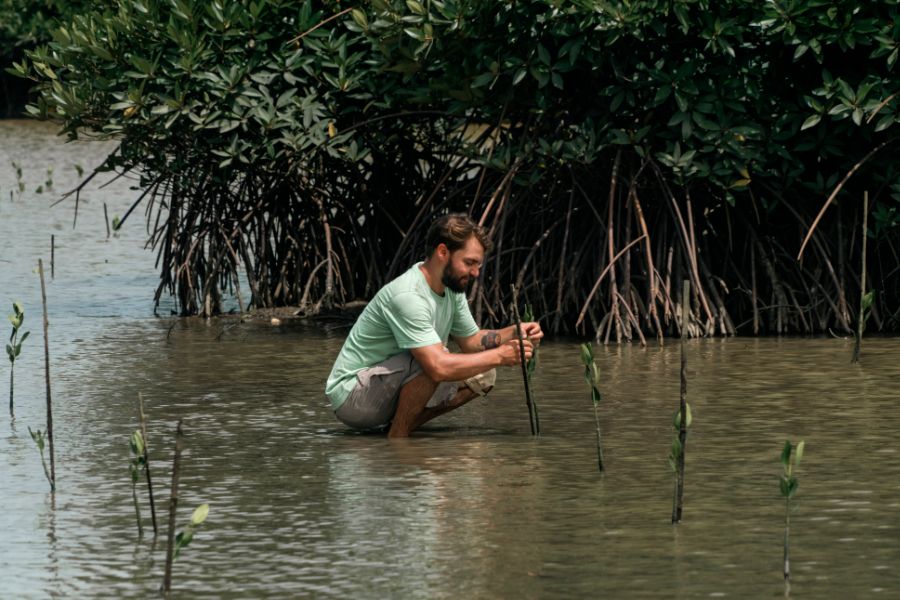
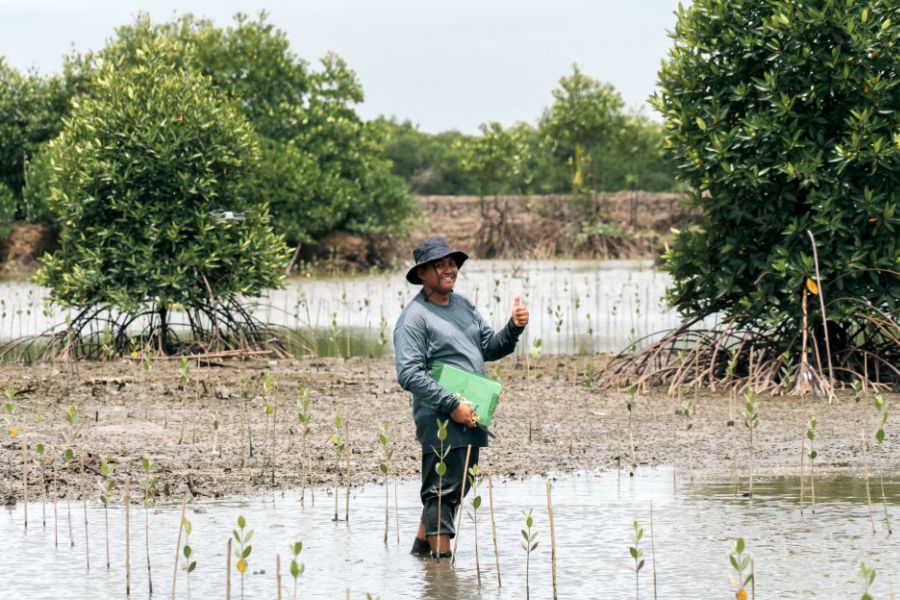
The audit mission conducted in Sumatra in October 2022 by Martín and Ade is thus an opportunity to observe, within a sample of plots, the growth of mangroves, their planting density, their survival rate, and other indicators that show how well the restoration projects are going, such as the presence of biodiversity. "The first trees planted in Sumatra in 2017 with Reforest'Action funding are now almost at a mature stage. They have recreated a full-fledged forest ecosystem, full of life and resources for the local communities, where there was nothing five years before," says Martín as he walks through these historic plots, where the mangrove has regained its rights. As far as the development of biodiversity is concerned, the evidence is indeed before our eyes: the restored plots are already teeming with animal life and our pirogues will come across the stealthy flight of the blue-backed kingfisher and the great white heron, the mincing of the very rare silver-leafed monkey, as well as the discreet swimming of numerous crabs, fish and jellyfish sheltered by the large stilt roots of the mangrove.
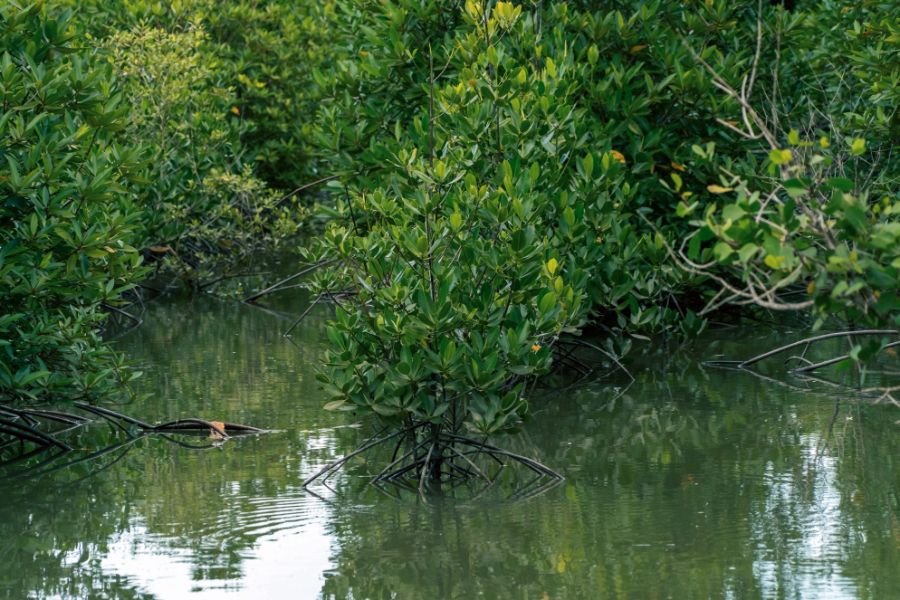
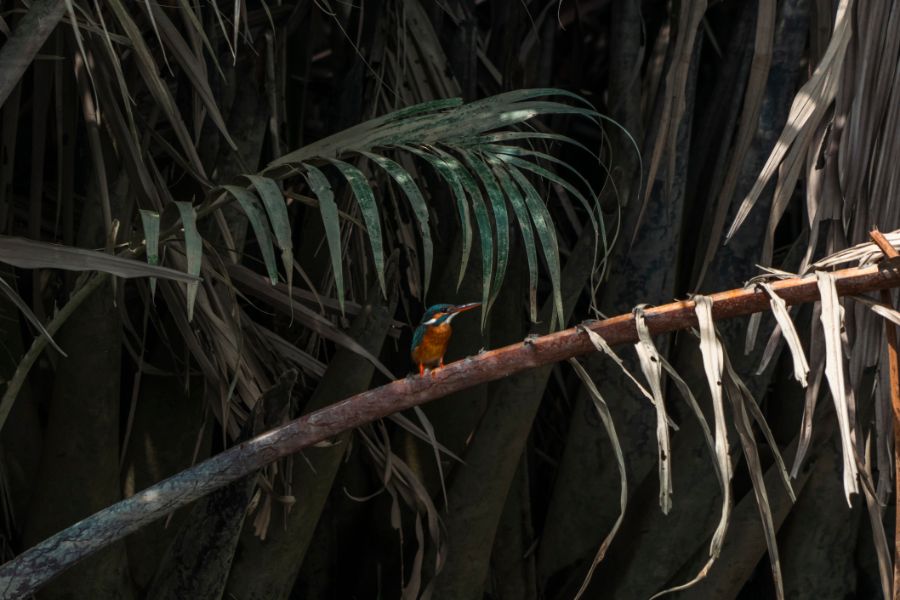
Through exchanges with the Yagasu and Yakopi teams, as well as with the villagers involved in the projects, Martín also assesses their sustainability, in order to ensure that the regenerated ecosystems are protected in the long term. "Another important aspect of these projects is the conservation of the restored mangroves. Without conservation actions, this restoration would not be sustainable." At the end of the audit, Martín and Ade will produce a report on the projects' achievements and areas for improvement to ensure the best possible implementation.
